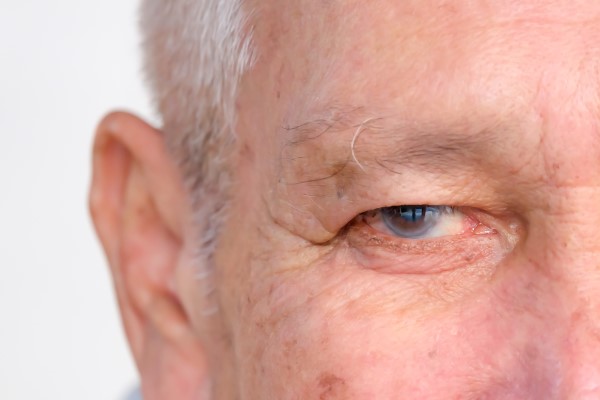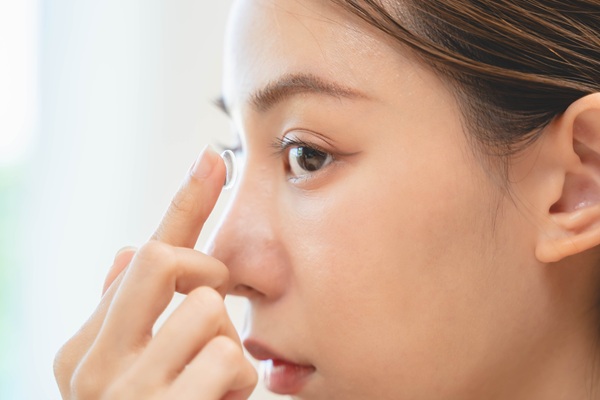Glaucoma Treatment

While certain eye diseases and conditions are more obvious, some conditions are difficult to notice in the early stages. Glaucoma is one such condition that can seriously harm one's vision without professional treatment. Glaucoma treatment involves an optometrist applying customized care to help prevent symptoms from getting worse and providing pain relief for the individual patient.
Glaucoma treatment is offered at Texas Optical in Dallas and the surrounding area. The term glaucoma refers to a group of eye disorders that cause damage to a person's optic nerve, typically due to the high pressure it creates in the eye.
Understanding Glaucoma
The optic nerve is essential for clear vision. A damaged optical nerve can lead to permanent blindness. Glaucoma can affect people of all ages, but it is more likely to affect seniors. Glaucoma has many different forms that each come with unique symptoms or warning signs.
Most people with glaucoma do not notice any changes to their vision until their condition reaches an advanced stage. It is not possible to reverse vision loss that results from glaucoma. This is why it is important to diagnose Glaucoma early to prevent blindness from occurring. This is one of the many reasons why senior eye care is so important.
Optometrists recommend yearly eye examinations for all those who over the age of 60. When glaucoma is detected early on, the vision loss that typically comes with it can be prevented or, at least, slowed down. People diagnosed with glaucoma usually need glaucoma treatment for the rest of their lives. Types of glaucoma include:
Open-angle glaucoma
Open-angle glaucoma occurs when the drainage system in the eye gets partially blocked. It is the most common type of glaucoma.
Angle-closure glaucoma
Angle-closure glaucoma occurs when the iris blocks the drainage path. This can also occur if the patient has a more narrow drainage system.
Normal-tension glaucoma
Normal-tension glaucoma occurs when the optic nerve sustains damage despite the patient having healthy eye pressure.
Pigmentary glaucoma
Pigmentary glaucoma occurs when pigment granules that part with the iris build up in the drainage system in the eyes.
Signs glaucoma treatment is necessary
The symptoms and signs of open-angle glaucoma can vary depending on the person's condition and the type of glaucoma. Possible symptoms include:
- Severe headaches
- Blind spots in a person's vision
- Tunnel vision in the later stages
For the acute angle-closure variety, the symptoms include:
- Vomiting and nausea
- Halos appearing around light
- Red eyes
- Headaches
- Blurred vision
Causes of glaucoma
While medical professionals do not fully understand how increased eye pressure damages the eyes, but glaucoma is the result of damaged optic nerves. A person's eye pressure builds up due to a collection of aqueous humor, a fluid that flows through the insides of the eyes. This fluid usually drains through a tissue known as the trabecular meshwork.
When the drainage system does not work properly or produces more fluid than the eyes need, the person's eye pressure increases. While the conditions that lead to glaucoma typically runs in families, other risk factors include:
- Being over the age of 60
- Certain eye injuries
- Ethnicity (People of African, Asian and Hispanic descent are more likely to develop it)
- Medical conditions like heart disease, high blood pressure and diabetes
Treatment options for glaucoma
After examining the patient's eyes, we will determine the most effective treatment option for their level of glaucoma. With that in mind, we may:
- Perform a tonometry test to measure the patient's eye pressure
- Check for vision loss
- Measure the thickness of the patient's cornea
- Examine the optic nerve and the drainage system in the eyes
The treatment techniques we use aim to prevent the condition from leading to permanent damage or minimizing the damage that is already present. Treatment options can include prescription eye drops and oral medication. While surgery and laser treatments are a possibility, the type of treatment we recommend will vary per the patient.
Request an appointment here: https://www.texasoptical.net or call Texas Optical at (214) 771-7333 for an appointment in our Dallas office.
Check out what others are saying about our services on Yelp: Read our Yelp reviews.
Recent Posts
For those living with diabetes, undergoing a diabetic eye exam is one of the most important steps in protecting their vision and overall eye health. High blood sugar levels can lead to a range of complications, including conditions that damage the eyes over time. These exams help detect these issues before they become serious, allowing…
Contact lenses provide clear vision and convenience for individuals who prefer an alternative to eyeglasses. However, proper care and maintenance are essential to prevent infections, irritation, and eye damage. Neglecting hygiene practices can lead to serious eye conditions, including corneal ulcers and keratitis. Understanding how to clean, store, and handle contact lenses ensures long-term eye…
Maintaining eye health and preventing long-term issues is the result of consistent and quality vision care. Many people focus on overall wellness but may overlook daily habits that support healthy eyesight. However, taking simple steps each day can protect vision, reduce eye strain, and prevent future complications. By making eye health a priority, it is…
Prescription contacts provide vision correction, comfort, and convenience for those who do not want to wear glasses. However, caring for and wearing contacts takes some getting used to. Learning to insert, remove, and maintain them will help ensure a comfortable and safe experience.Not all contact lenses are the same, and choosing the right pair is…


